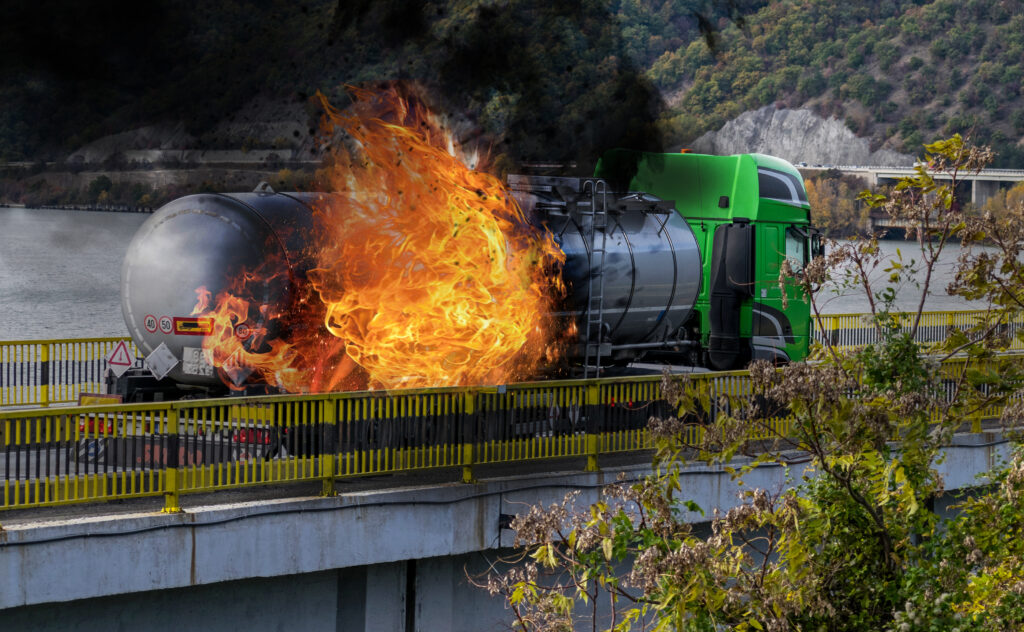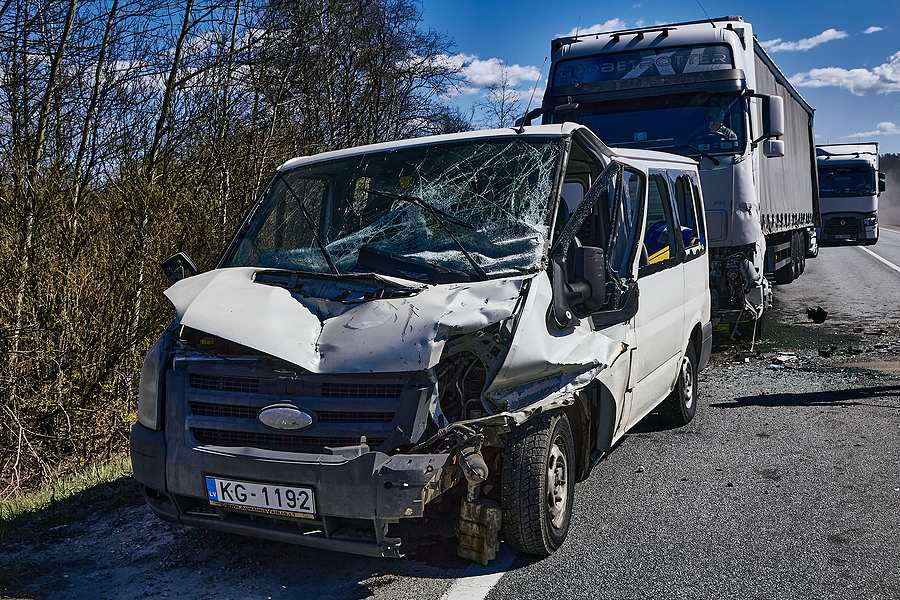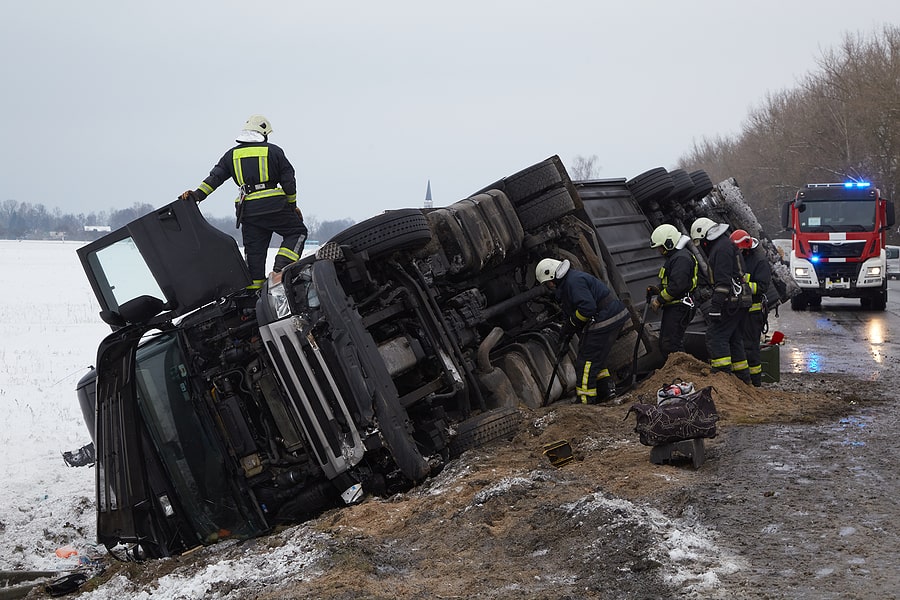Tanker truck accidents are a serious yet under-discussed danger on the road. These large vehicles transport vast quantities of goods and hazardous materials across our country daily, playing a vital role in our economy and way of life.
When accidents involving these vehicles occur, however, the consequences can be catastrophic, with the potential for significant physical harm, environmental damage, and economic fallout.
Understanding the dynamics of tanker truck accidents—including their prevalence, causes, and implications— is crucial for those in the trucking industry, the average road user, and society.

Knowing what these vehicles are and how they operate, the types of incidents that occur, and the complexities of the legal aftermath can ensure you know what to do if you’re involved in one of these accidents, also how a Long Island truck accident lawyer can help you throughout legal complexities.
Understanding Tanker Trucks
Before delving into the specifics of tanker trucks, it is important to highlight that not all trucks are the same. Different types of trucks have distinct features, functions, and associated risks.
Tanker trucks, in particular, are unique due to their function of transporting liquids, gasses, and other fluid materials. These trucks are typically larger and heavier than regular trucks, with a cylindrical tank horizontally positioned on the vehicle’s frame.
The unique structural design and weight distribution of these trucks influence their maneuverability and stability on the road, which presents unique challenges to their safe operation. The transported materials may also require special care due to their hazardous nature.
Description of Tanker Trucks
Tanker trucks can range in size, but they can typically carry up to 8,500 gallons of liquid, depending on the substance. The tank is cylindrical to maximize the storage space and minimize the center of gravity for stability.
Most tanker trucks have several compartments, which can prevent the load from shifting, potentially causing imbalance during transport. This compartmentalization also allows for the transportation of different types of liquids or gasses simultaneously. These vehicles need regular maintenance to ensure optimal performance and safety, as neglecting such duties could lead to failures and accidents.
The Main Uses of Tanker Trucks
The primary use of tanker trucks is to transport large volumes of liquid or gas, such as fuels—including gasoline and diesel—chemicals, food-grade products—like milk and water—and even liquefied gasses.
Given the range of materials they carry, these vehicles are integral to numerous industries. The hazardous nature of some of these substances requires that tanker truck operations adhere to strict safety standards and regulations. This is to ensure the safe and efficient delivery of cargo without harm to the environment or the communities they pass through.
The Prevalence of Tanker Truck Accidents
According to the Federal Motor Carrier Safety Administration, there were nearly 2,500 crashes involving large trucks carrying hazardous materials in 2020. While tanker trucks constitute only a portion of these crashes, the numbers underscore the associated risks of transporting such substances.
Accidents involving trucks carrying hazardous materials resulted in the spill or release of cargo 20 percent of the time, making exposure a substantial risk for everyone involved in a crash with a tanker truck.
Comparison With Other Types of Truck Accidents
Tanker truck accidents are typically more severe than other commercial truck accidents due to the nature of the cargo they transport. Standard freight trucks or flatbed trucks, for instance, may result in severe accidents primarily due to their large size and weight. The risk in this case, however, generally consists of physical damage and human injury.
Tanker trucks hauling hazardous materials, on the other hand, pose a three-part risk. In addition to the large size and weight common to all commercial trucks, the liquid can spill more easily. Depending on the substance, this can instantly escalate the severity of the incident due to potential fires, explosions, or toxic exposure. Such incidents can also cause destructive and long-lasting environmental impacts.
Some truck accidents—such as those involving moving vans or delivery trucks—may occur more frequently in residential areas or city streets, tanker truck accidents are more prevalent on highways. High speeds, in combination with the factors above, can significantly exacerbate the consequences when accidents do occur.
Given these increased risks and the potential for wide-scale damage, the regulations, precautions, and training standards that apply to tanker trucks are more stringent than other commercial vehicles.
Causes of Tanker Truck Accidents
While various factors can cause tanker truck accidents, some of the most common issues include driver error and equipment failure. Driver error can include speeding, distracted driving, fatigued driving, or driving under the influence. In some cases, a driver may not understand how to handle a tanker truck, leading to mistakes while driving.
Equipment failure occurs when the tanker truck or the equipment securing the cargo fails. A mechanical fault with the truck’s braking system, for instance, could cause the driver to lose control of the vehicle. If the equipment restraining the tanker’s load is faulty, it might cause the liquid or gas inside to shift abruptly, leading to a loss of control over the vehicle.
Inadequate maintenance of the truck can lead to these equipment failures. Regular checks and servicing keep the tanker truck in proper working condition and safe for the road. Neglecting to conduct these checks can result in faulty components causing accidents.
Consequences of Tanker Truck Accidents
Tanker truck accidents can have widespread consequences beyond the immediate incident scene.
Physical Injuries and Fatalities
When it comes to physical harm, the aftermath of tanker truck accidents can be devastating. Due to these vehicles’ large size and heavy weight, even minor accidents can lead to serious, sometimes life-threatening, injuries. Victims may suffer from traumatic brain injuries, spinal cord injuries, broken bones, severe burns, and other debilitating conditions.
In more tragic circumstances, these accidents can lead to immediate fatalities or deaths due to subsequent complications.
The recovery from these injuries can be long and arduous. Extensive medical treatments, physical therapy, and potential long-term disability can significantly affect the victim’s quality of life. The emotional trauma the involved parties and their families suffer adds another layer of hardship to these incidents.
Environmental Hazards Due to Spills
Tanker truck accidents may result in the release of hazardous materials into the environment, causing significant environmental damage. This damage can occur in several ways.
A spill of petroleum products or chemicals, for instance, can contaminate soil and groundwater, leading to long-term pollution that can harm local ecosystems and wildlife. Gaseous materials might leak and disperse into the air, contributing to air pollution and potentially causing health risks to nearby communities.
Cleaning up these spills can be complex and costly. Safely removing certain materials may require specialized procedures and equipment, and contaminated soil might necessitate excavation and replacement. In severe cases, remediation efforts can take years or even decades.
Legal Implications of Tanker Truck Accidents
An accident involving a tanker truck is typically more challenging from a legal standpoint than other vehicular accidents. The primary reason for this is the difficulty of establishing liability. It could be the driver for negligent behavior, the trucking company for poor maintenance or rigorous scheduling, or even the manufacturer if it involves equipment failure.
Specific laws and regulations govern the transportation of hazardous materials that tanker trucks carry. Non-compliance with these regulations can lead to severe penalties and be a significant factor in determining liability in the event of an accident.
Another legal aspect that can complicate tanker truck accidents is insurance coverage. Due to the potential for large-scale damage and the transport of hazardous materials, complex insurance policies cover these vehicles and their operations. Factors such as the type of cargo, the truck’s route, and the level of the driver’s training can all influence insurance coverage and claims.
These accidents often involve numerous parties—the driver’s employer, the truck’s owner, the manufacturer, the insurance companies, and the drivers of other vehicles in the accident—each with their own legal teams. As a result, legal proceedings following a tanker truck accident can be lengthy and complex, requiring dedicated legal representation for those seeking compensation.
Role of Negligence in Tanker Truck Accidents
Negligence refers to the failure to exercise reasonable care, resulting in harm or damage to others. In the context of tanker truck accidents, this could involve a variety of negligent actions or omissions by various parties.
You can hold the driver at fault if they broke the speed limit, drove under the influence, or failed to follow traffic rules. Failing to properly secure the cargo or monitor and maintain the vehicle’s condition may also indicate negligence.
The trucking company may be negligent in certain circumstances if it fails to perform adequate maintenance on the truck or provide adequate training for its drivers. In such cases, you would need to prove that the negligent party had a duty of care, breached that duty, and that the breach caused the accident and your ensuing damage or injuries.
The Legal Process Following a Tanker Truck Accident
Accident victims may seek compensation for injuries, damage, or loss incurred. Insurance adjusters typically examine these claims, evaluate their validity, and determine payment. If you can’t settle, the matter may result in a lawsuit. This involves filing a complaint in court and going through the discovery process, where both sides gather relevant evidence.
If your case goes to trial, both parties will present their evidence and may call witnesses to testify. An alternative solution would be to resolve the dispute through negotiation or a settlement conference before reaching trial. The timeline of this process can vary greatly depending on the complexities of your case.
Potential Compensation for Victims
The compensation victims can seek after a tanker truck accident may be extensive due to the potential severity of these crashes. Damages can include payment for immediate medical expenses—such as emergency room visits, surgeries, and medication—and cover the costs of ongoing treatment or rehabilitation.
Compensation does not only apply to physical injuries. You can also receive reimbursement for psychological trauma or mental anguish due to the accident. This can be a significant component of the overall damages, particularly if you suffer an ongoing condition, such as post-traumatic stress disorder or depression.
Lost income can also be a significant aspect of compensation for victims. This includes the income lost from being unable to work in the immediate aftermath of the accident and any future lost earnings if you cannot return to your previous job or work the same number of hours. Other considerations include damage to your vehicle or personal property.
If the truck driver’s or trucking company’s negligence is particularly egregious, victims may receive punitive damages. These aim to punish the responsible party and discourage similar negligent behavior in the future.
What To Do if You’re Involved in a Tanker Truck Accident
After an accident, do not discuss fault or liability, even if it appears obvious. Avoid making statements to the other parties or their insurance companies without talking to your attorney. They could use anything you say against you later.
Report the accident to your insurance company as soon as you can, but never sign any documents or accept any settlement offers without consulting a lawyer experienced in handling tanker truck accidents. A lawyer can explain your rights and the compensation you may deserve.
Contact a lawyer as soon as possible after the accident, as strict deadlines can apply to filing truck accident claims. A delay could mean losing the opportunity to recover damages.

Discuss Your Tanker Truck Accident Case With an Attorney
Tanker truck accidents are complex. Each incident is unique and may encompass a variety of factors. If you suffered injuries in an accident involving a tanker truck, you may receive compensatory damages. An attorney with experience in tanker truck accidents will determine the best way for you to move forward.








